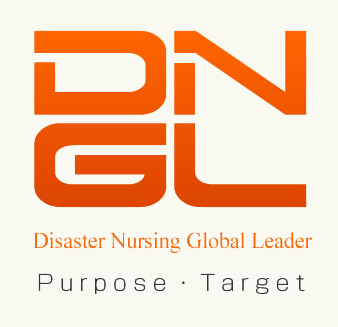Global Network

During 5 years in this program, students will learn to prepare and deliver presentations, negotiate successfully, and to read up-to-date scientific publication in English. Courses will be provided by foreign instructors in English at each university who will cater to each student’s needs and assist students with techniques to improve English on their own.
To foster global leadership skills, the program offers courses in Disaster Nursing Global Coordination Theory, Disaster Nursing Leadership Theories, and Disaster Nursing Global Leader Practice. Also, the program offers internship opportunities at international organizations and overseas health organizations through which program participants will gain an understanding on role of a disaster nursing leader in disaster related policy making and process.
DNGL program offers practical skills sets such as analysis of the overall situation in case of a disaster, such as assessing health
index, disease burden and health care system, and available support systems, so that students can solve problems and carry out
nursing practice in disaster settings Students will learn about problems that are directly related to disasters such as global
environment, poverty and development issues, and various customs and values of areas that are affected by disasters.
Anytime a disaster erupts, global leader’s effective and efficient decision making skill is critical. DNGL trains students to be leaders with critical thinkers in Decision Making Training Program. For example, students will be given practice cases to make analytical decisions through the process of evaluating a health status of disaster-struck nation, organizing priorities, dispatching human resources in multidisciplinary and multicultural group practice.
1. United Nations (UN)
In addition, instructors, who are leading educators and researchers, from overseas partner universities, WHO Collaborating Center for Nursing in Disaster and Health Emergency Management, internationally affiliated centers with Red Cross, and other international organizations will be invited to give lectures to promote thinking in global perspectives.
Furthermore, as global leaders, program participants will be trained in a comprehensive disaster risk reduction program to acquire skill sets in communicative competency in public health/risk management, obtaining perspectives of potential victims of disasters, strengthening ability to bring public consensus according to the residents and the officials stand points, and applying various skills to local ICT.
Five universities of this program has established affiliation with WHO Collaborating Center for Nursing in Disaster and Health Emergency Management, Red Cross hospitals overseas, and JICA for internship opportunities. Practicum and internship in overseas field will offer students ample opportunities to grow into global leaders who will be able to think and act with global perspectives.

2. Joint United Nations Program on HIV and AIDS (UNAIDS)
3. United Nations International Strategy for Disaster. Reduction (UNISDR)
4. World Health Organization (WHO)
5. World Health Organization Western Pacific Regional Office
6. World Health Organization Collaborating Center for Nursing in
Disaster and Health Emergency Management (WHOCC)
7. World Society of Disaster Nursing
8. International Council of Nurses
9. International Federation of Red Cross and Red Crescent Societies
10. International Committee of the Red Cross
11. Sigma Theta Tau International (STTI)
12. Laerdal
Hong Kong
13. Hong Kong Polytechnic University
Indonesia
14. Gadjah Mada University
Israel
15. Sheba Medical Center
16. Center for Emergency Response Research
17. Rambam Health Care Campus
Thailand
18. Bhumibol Adulyadej Hospital
19. Songkla University
Sweden
20. Center for Teaching & Research in Disaster Medicine
